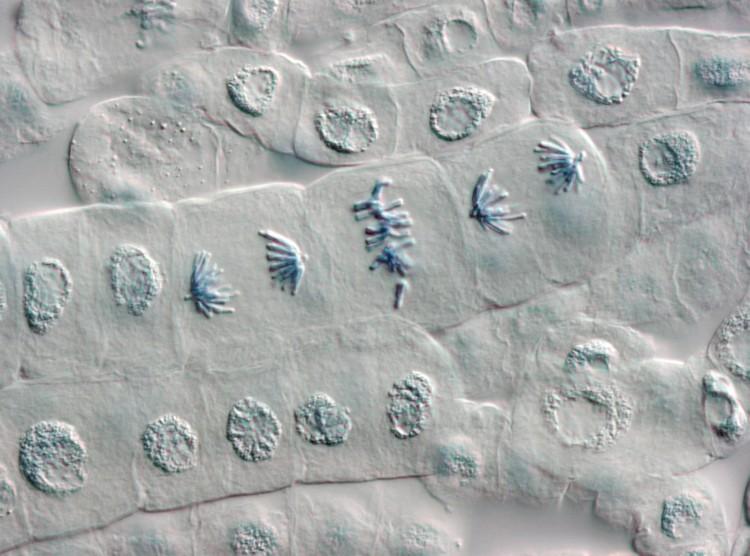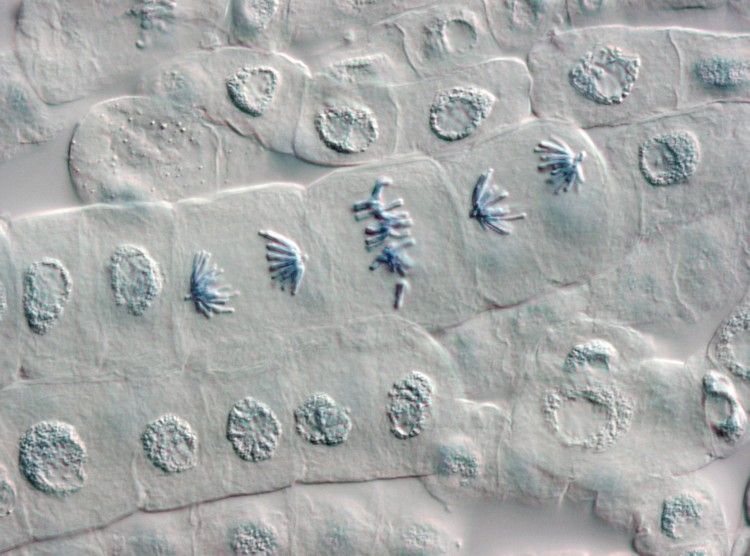Certain proteins can be targeted to stop uncontrollable cell division, such as in the case of cancer, according to a new study published online in Nature Cell Biology.
Cell division involves genetic material condensing into chromosomes and dividing equally to two poles, separated by an elongated bipolar structure called the mitotic spindle. At each of the two poles, a daughter cell will be formed containing identical genetic material to that of the original cell.
In order for the chromosomes to be equally divided between the daughter cells, “it is very important that this [mitotic] spindle is formed correctly and maintains its bipolar shape,” study co-author Elsa Logarinho of Portugal’s Institute for Molecular and Cell Biology said in a press release.
But in some cases, the mitotic spindle takes on a multipolar structure, causing unequal distribution of genetic material. Multipolar divisions are characteristic of various types of cancer.
Oftentimes, cells can cluster these multiple poles into a bipolar spindle, and this means the cell can divide into two as usual, allowing the cancer genome to survive.
The study shows that some proteins, including a type called CLASPs, play a supporting role in forming the mitotic spindle during cell division. When CLASPs do not work properly, cancer cells cannot regroup the multiple poles into a bipolar spindle, which makes the process irreversible, and the cancerous daughter cells cannot survive.
“In theory, if we devise ways to target CLASPs only in cancer cells, for example, we can prevent tumors from continuing growth,” project leader Helder Maiato, also of the Institute for Molecular and Cell Biology, said in the press release.







